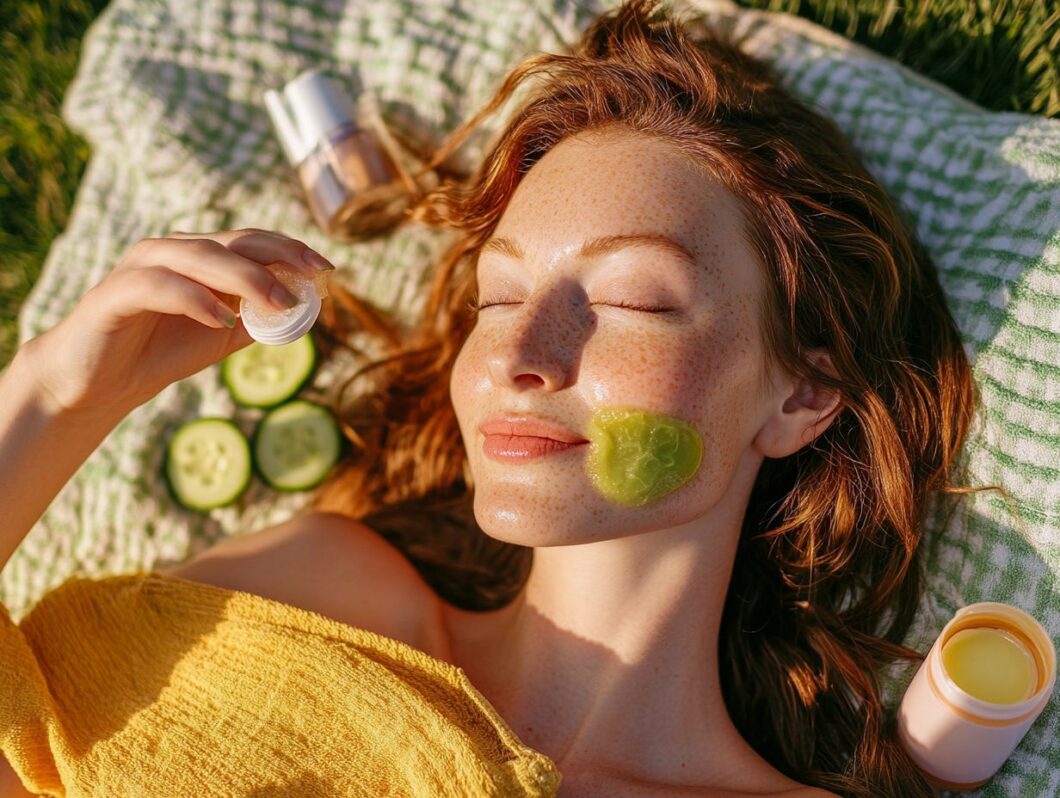After a long day in the sun, I often notice the effects of dehydration on my skin. Sun exposure can strip away moisture, leaving my skin feeling dry, dull, and more vulnerable to damage.
It’s crucial for me to rehydrate my skin after sun exposure, identify the signs of dehydration, and utilize effective techniques and treatments to restore my skin’s vitality. I also prioritize essential practices to prevent both dehydration and sun damage in the future. My skin deserves the best care, and I’m committed to discovering how to keep it healthy and glowing.
Key Takeaways:
The Importance of Hydrating Your Skin After Sun Exposure
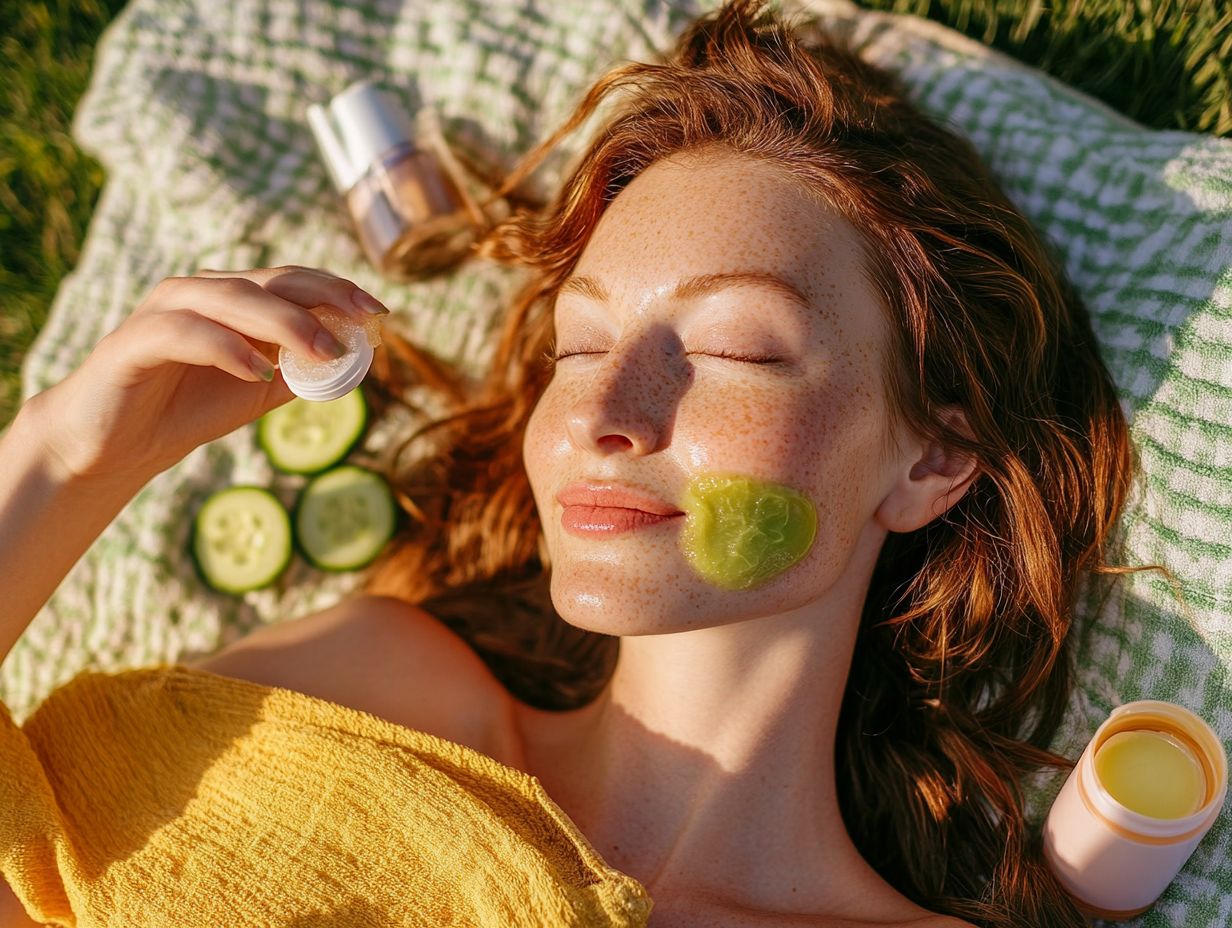
I understand that hydrating my skin after sun exposure is essential for maintaining optimal skin health. The harsh impact of UV rays can lead to dehydration, an increased risk of skin damage, and a compromised skin barrier.
During the summer months, when sun exposure is at its peak, I find it crucial to incorporate effective hydration techniques to replenish lost moisture, repair any skin damage, and enhance my overall skincare routine.
This involves selecting the appropriate skincare products, such as moisturizing creams and soothing lotions, specifically designed to combat the effects of sun exposure and promote healthy, glowing skin.
Why Sun Exposure Can Dehydrate Your Skin
Sun exposure can significantly dehydrate my skin due to the damaging effects of UV radiation. This compromises the skin barrier and leads to moisture loss, resulting in dry, irritated, and damaged skin.
When ultraviolet rays penetrate the skin, they trigger a range of physiological reactions, including inflammation and the breakdown of collagen, which is essential for maintaining skin elasticity and hydration. As the protective layer of my skin becomes compromised, its ability to retain moisture diminishes, leading to an unbalanced complexion and increased vulnerability to environmental stressors.
Additionally, UV exposure can stimulate the production of free radicals, exacerbating oxidative stress and accelerating the aging process. To counter these harmful effects, incorporating antioxidants into my skincare routine is crucial, as they help neutralize free radicals and promote overall skin health.
Furthermore, staying hydrated and using effective sunscreen are fundamental protective measures against skin dehydration and damage.
Signs of Dehydrated Skin
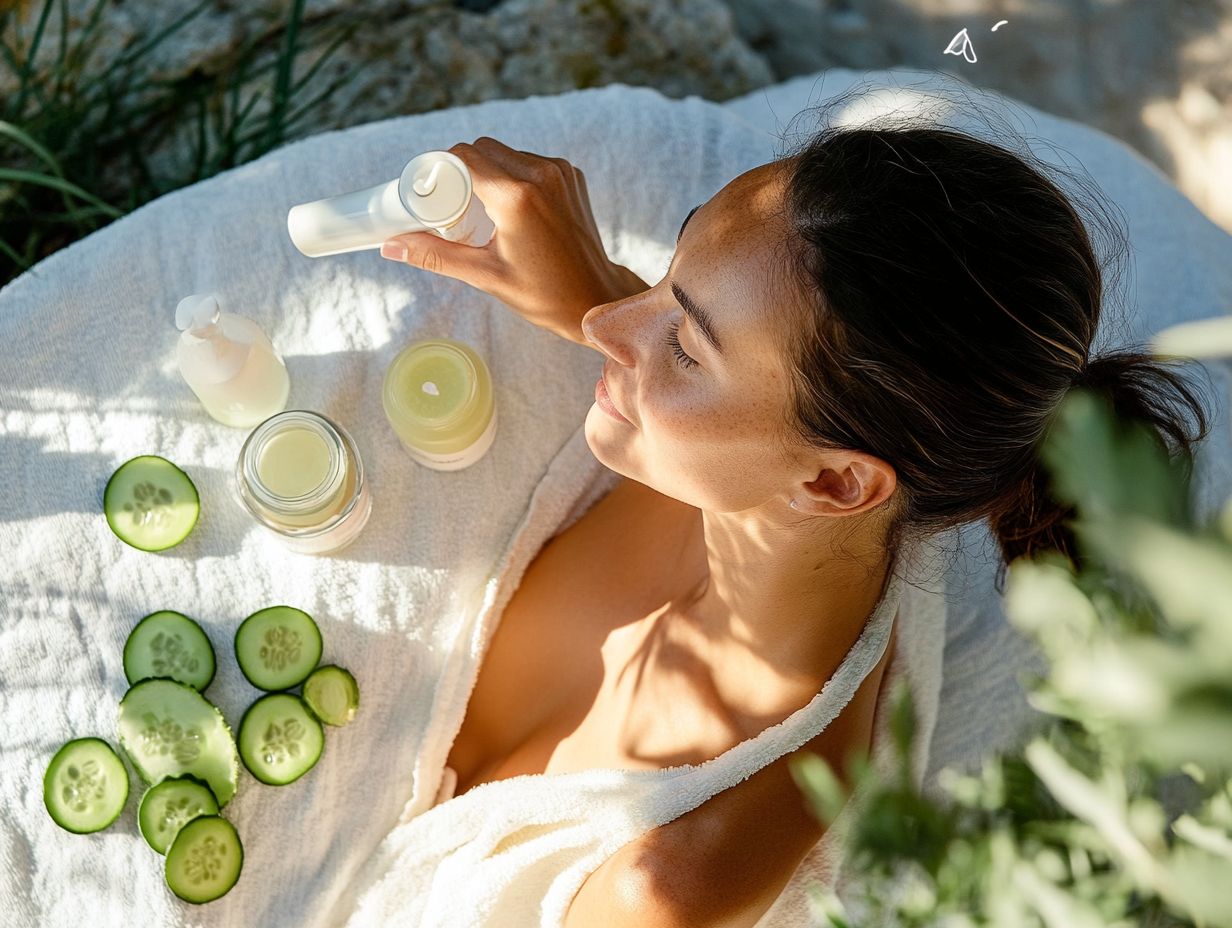
I understand that recognizing the signs of dehydrated skin is crucial for maintaining overall skin health and preventing further damage.
Symptoms such as dryness, tightness, flakiness, and reduced skin elasticity clearly indicate that my skin is not receiving adequate hydration.
Identifying Dehydration and Its Effects on Skin
I can identify dehydration in my skin by observing several key signs, such as increased dryness, dullness, and the emergence of fine lines. These indicators highlight the necessity for effective moisturizing products and hydration techniques to restore my skin’s health.
Along with these visual cues, I may also notice tactile sensations like roughness or tightness, which prompt me to evaluate my skin’s hydration levels further.
When my skin becomes dehydrated, it can lead to a range of negative effects, including accelerated aging, heightened sensitivity, and a compromised moisture barrier.
These changes can detract from my overall appearance, making my skin look lifeless and potentially leading to further issues such as irritation or inflammation.
Recognizing the importance of regular hydration and implementing appropriate skincare strategies allows me to achieve revitalized and healthy skin, fostering a radiant complexion.
Effective Ways to Hydrate Your Skin
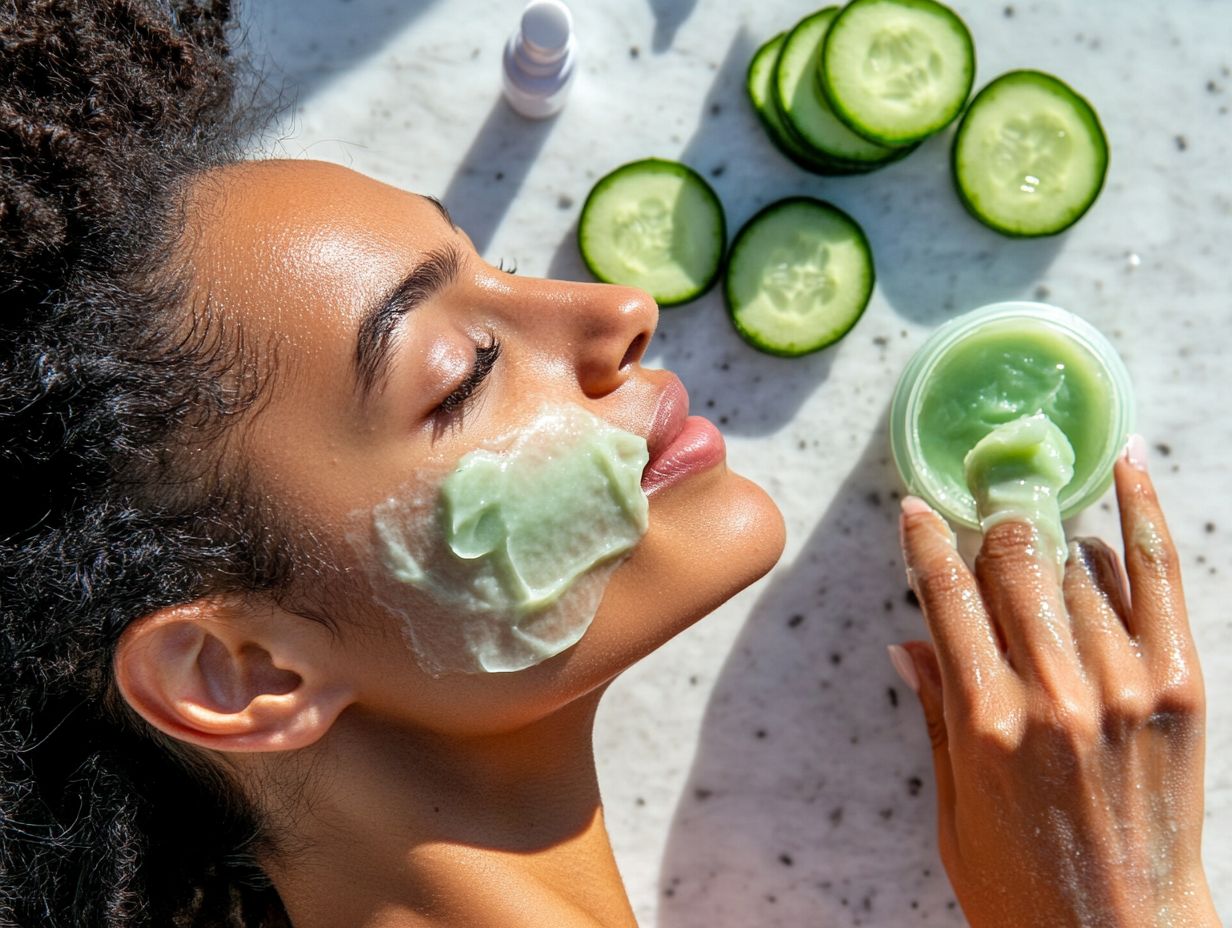
To achieve optimal hydration for my skin, I recognize the importance of incorporating effective methods. This includes the use of a nourishing moisturizing cream, maintaining a well-rounded skincare routine, and utilizing topical treatments that contain hydrating ingredients such as hyaluronic acid and vitamin C.
Topical Treatments and Moisturizing Techniques
Topical treatments and moisturizing techniques are crucial for enhancing skin hydration. I find that products enriched with hyaluronic acid and vitamin C are particularly effective, as they attract moisture and improve overall skin texture.
Incorporating specific skincare products, such as gentle cleansers and nourishing lotions, can significantly elevate skin health. Gentle cleansers are vital because they effectively remove impurities while preserving the skin’s natural barrier, ensuring that moisture remains locked in.
When choosing moisturizers, I prefer lotions that contain ingredients like glycerin and ceramides. These not only provide hydration but also assist in repairing the skin’s moisture barrier, resulting in a smoother complexion.
Additionally, I emphasize the importance of products infused with antioxidants, as they offer protection against environmental stressors. This approach creates a well-rounded skincare routine that is essential for anyone looking to maintain healthy, hydrated skin.
Preventing Dehydration and Sun Damage
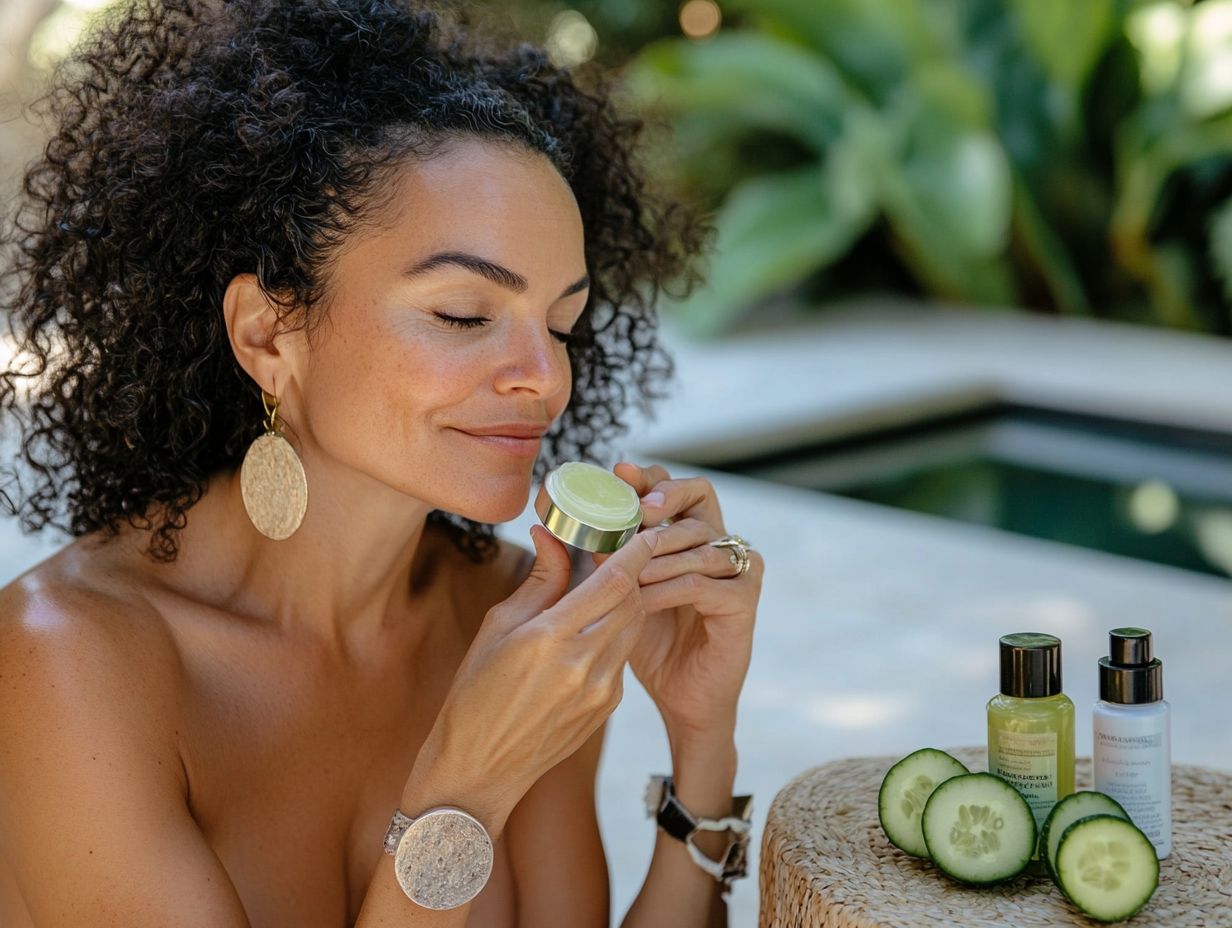
I prioritize preventing dehydration and sun damage through a strategic approach. This includes wearing protective clothing, regularly applying sunscreen, and utilizing effective post-sun care products that are specifically designed to soothe and repair my skin after exposure.
Best Practices for Sun Protection and Skin Hydration
Implementing best practices for sun protection and skin hydration is essential for maintaining healthy skin during the summer months. I prioritize applying a broad-spectrum sunscreen daily and using a high-quality moisturizing lotion.
Along with diligent sunscreen application, I specifically choose products that contain hydrating ingredients, such as hyaluronic acid and glycerin, which effectively lock in moisture. When considering my summer skincare routine, I am mindful that sunscreen should be reapplied every two hours, especially after swimming or sweating.
I also recognize the benefits of incorporating antioxidants into my skincare, such as vitamin C and green tea, which provide additional protection by neutralizing free radicals generated by UV exposure. Using a lightweight, non-comedogenic moisturizer helps keep my skin supple without feeling greasy, creating an ideal environment for my skin to thrive even under the warm sun.


